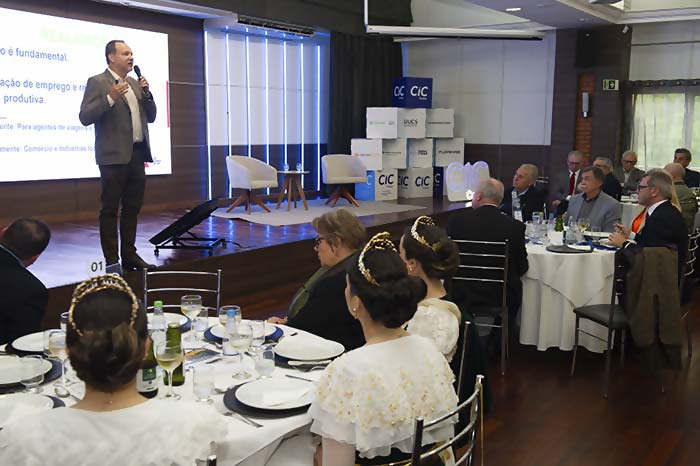The acting state secretary of Tourism of Rio Grande do Sul, Luiz Fernando Rodrigues Junior, emphasized the crucial importance of tourism as an essential engine for economic and social progress. During a lecture held this Monday (25), as part of the Municipal Tourism Week 2023 and promoted by the Chamber of Industry, Commerce and Services of Caxias do Sul (CIC Caxias), he highlighted that tourism goes beyond a mere industry of leisure, being a force capable of boosting sustainable development and creating jobs throughout the state.
Positive Impact on the Job Market
The numbers presented by the secretary clearly demonstrated the positive impact of tourism on the labor market in Rio Grande do Sul. In 2022, the tourism sector in Rio Grande do Sul registered the admission of 105,939 professionals in various segments, generating a positive balance of 11,579 jobs, representing a notable increase of 23.7% compared to the previous year.
Gastronomy Leads in Job Creation
Among the sectors that stood out most in job creation, gastronomy was the leader, being responsible for 63% of new admissions in the tourism sector. The hotel industry contributed with 11% of new admissions, while tourist transport represented 10.6% of new job vacancies created in 2022. The positive impacts of this performance extend indirectly to commerce and industries, as highlighted by the secretary.
Nature Tourism on the Rise
Nature Tourism, especially during the pandemic, emerged as an opportunity worldwide, and in the state of Rio Grande do Sul it was no different. With health restrictions encouraging people to look for outdoor and less crowded destinations, the continuous growth of this segment has been significant, maintaining the expansion trend. Data shows that from 2020 to 2022, 132 companies were created as campsites, representing a growth of 53% in the period.
Repositioning and Management of the Tourism Brand
Among the strategic actions of the state Tourism Department, the repositioning and management of Rio Grande do Sul’s tourist brand represent a decisive step in expanding market opportunities. In addition to reformulating the state’s image, the initiatives seek to open doors for investments, strategic partnerships and a closer relationship with government bodies, in order to create an environment favorable to the growth of tourism. With a new positioning before different audiences and a robust focus on advertising through targeted channels, Rio Grande do Sul wants to stand out even more as an attractive and welcoming destination, both for domestic and international tourism.
Tourism Master Plan
The secretary also dedicated a good part of his lecture to talking about the implementation of the Tourism Master Plan, which is among the strategic actions of the RS Tourism Secretariat (Setur) in the sustainability axis. Responsible for planning, managing and monitoring tourism in Rio Grande do Sul, the Master Plan aims to strengthen decentralized management, support integrated tourism planning in the public security sector, improve the legal and regulatory environment of the tourism sector and expand and improve studies and research in tourism, among other initiatives.

Also according to Rodriguez, attracting events and audiovisual productions is also considered a vital strategy to promote tourism in Rio Grande do Sul. Through stimulation, qualification and support for attracting shows, fairs, corporate, scientific and sporting events, the state wants to strengthen its presence in the sector. Furthermore, Rio Grande do Sul also seeks to encourage, qualify and support the capture of films, series, soap operas and programs that present the cultural and natural richness of the state as a setting.
Non-tourism impact
In his opening speech, the president of CIC Caxias, Celestino Oscar Loro, expressed concern about the situation in the city, especially in the center region, taken over by street vendors and people living on the streets in inhumane conditions. For Loro, this situation has a direct impact on tourism, as the perception of safety and quality of life in a city influence travelers’ choice of destinations. The director of CIC Caxias emphasized that the entity, through its ESG Directorate and the Caxias Foundation, remains engaged and available to support the solutions that the Public Authorities come to lead.






